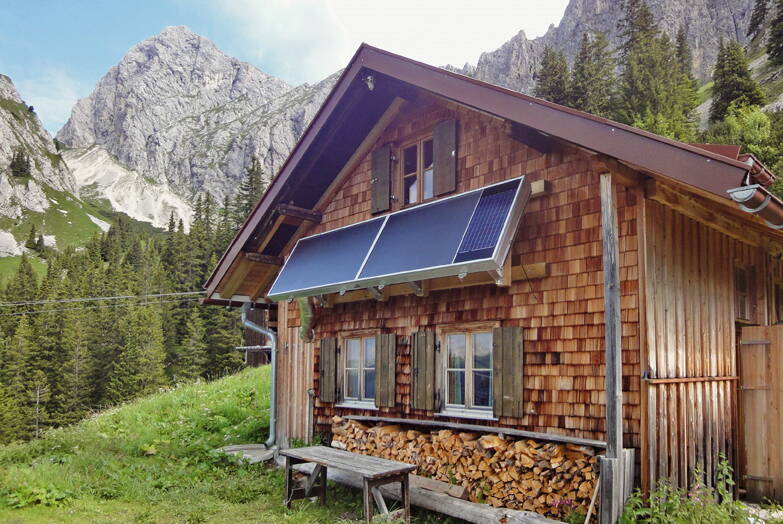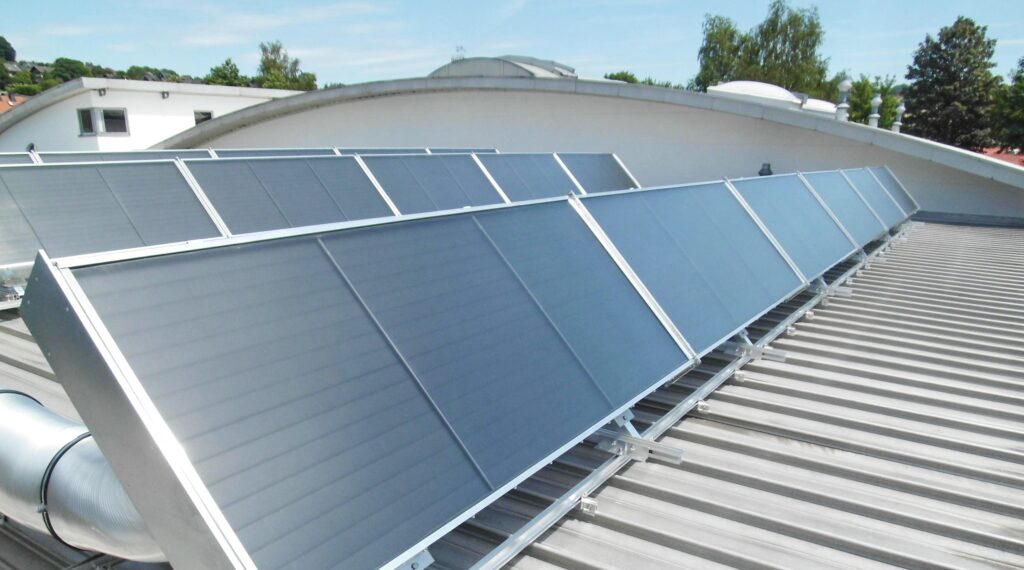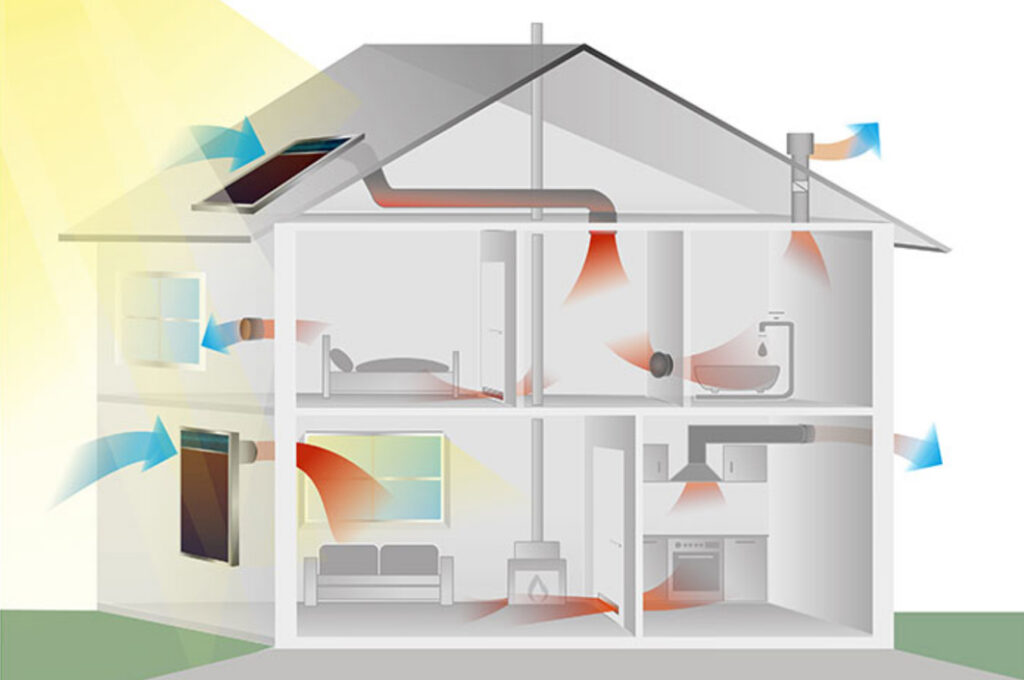Solar ventilation
You want an automatic ventilation system that does not consume electricity? With the self-sufficient solar ventilation from Grammer®Solar you improve the indoor climate and reduce heating costs at the same time.

Homepage › Solar ventilation
Ecological solar ventilation
That there is such a thing! Ventilation, air conditioning, heating and drying in one - and at zero cost! The system is called Grammer®Solar. Ventilation powered by the power of the sun ensures a healthy indoor climate and pleasantly low heating costs.
The maintenance-free, efficient system has proven itself many times over in vacation homes, chalets, mountain and hunting lodges, camping houses, permanently used caravans, mobile homes, etc. but also basements and garages benefit from solar heating and drying.
Grammer®Solar has been producing air collectors in Germany for over 40 years and is the first ever Solar Keymark certified manufacturer of solar air collectors in Europe. The Keymark certifies compliance with European standards.
⇓ «SolarVentilation» brochure from Grammer®Solar (German) [1.]


Our services
- Planning and dimensioning of solar ventilation
- Delivery of the air collectors
- Optional equipment of solar ventilation with night ventilation option
Your advantages
- Ventilation and temperature control with the power of the sun, without electricity costs
- Pleasant indoor climate and reliable protection against moisture and mold
- Lower heating costs, no operating costs, hardly any maintenance (only filter change)
- Simple and fast assembly

Grammer®Solar solar ventilations are also suitable for larger objects [Source image 2.].

Contact us without obligation
Do you have any further questions or may we prepare an offer for you?
Get in touch with us without obligation. We look forward to your inquiry!
Get in touch with us without obligation. We look forward to your inquiry!
Tobias Bayer
Managing Director

Questions & Answers
- General
- Costs
- Functionality
- Application area
- Procedure
What is solar ventilation?
What is the cost of solar ventilation?
We offer solar ventilation from Grammer®Solar from CHF 1'500 - 2'000 per qudartmeter of solar area throughout Switzerland. The exact price depends on the number and size of the solar air collectors, the accessibility of the installation site and the duration of the journey. Ask us without obligation for an individual offer.
What are the advantages and disadvantages of solar ventilation?
Solar air collectors provide automatic ventilation of the building, entirely without incurring electricity costs. The solar heated air creates a comfortable indoor climate and leads to lower heating costs during the cool seasons. The system is considered to be very reliable in operation with low maintenance requirements.
Who is Haustrocknung.ch?
How much does solar ventilation cost in Switzerland?
Solar ventilation from Grammer®Solar is available from CHF 1,500 - 2,000 per square meter of solar area. This includes the entire order processing. The actual price depends on the size and the number of air collectors, on the accessibility of the installation site as well as on the duration of our travel.
What are the electricity costs of solar ventilation?
Grammer®Solar solar ventilation operates completely self-sufficiently because it produces the electricity for the fans itself. If the system is equipped with the night ventilation option, electricity costs of CHF 25 per year can be incurred for night ventilation.
How does solar ventilation affect heating costs?
What maintenance costs and expenses should I expect?
How does solar ventilation work?
What can solar ventilation do?
Does solar ventilation filter pollutants from the air?
Yes, the aspirated air first passes through a filter before entering the house. This filter should be replaced once or twice a year. Apart from that, the system does not cause any maintenance expenses.
What is the maximum ventilation capacity of the air collectors?
For which buildings is solar ventilation suitable?
Where are the solar air collectors mounted?
The air collectors are mounted on flat roofs, pitched roofs or on facades - either flat or at an angle. The ideal location should receive as much sunlight as possible and have no partial shading.
How noisy is solar ventilation?
The operation of solar ventilation is virtually silent.
How do I control the solar ventilation?
What is the procedure for installing solar ventilation?
How long does it take to install solar ventilation?
The installation of solar ventilation usually takes one day. The duration of installation depends on the accessibility of the place where the collectors will be installed, as well as the number and size of solar air collectors.
What is the lifetime of solar ventilation?
Grammer®Solar estimates the service life of its solar air collectors to be at least 25 years. The collectors are certified according to the collector standards DIN EN ISO 9806 or DIN EN 12975-1 and have been manufactured in Germany for over 40 years.
How the solar air collector works

- As soon as the collector receives enough sunlight, the fan automatically turns on.
- Fresh outside air is drawn in through a filter and passed through the insulated air collector, heating the air by up to 40°K.
- Subsequently, the warm air enters the building through an insulated pipe.
- The humid, stale air goes outside through exhaust vents. [1.]